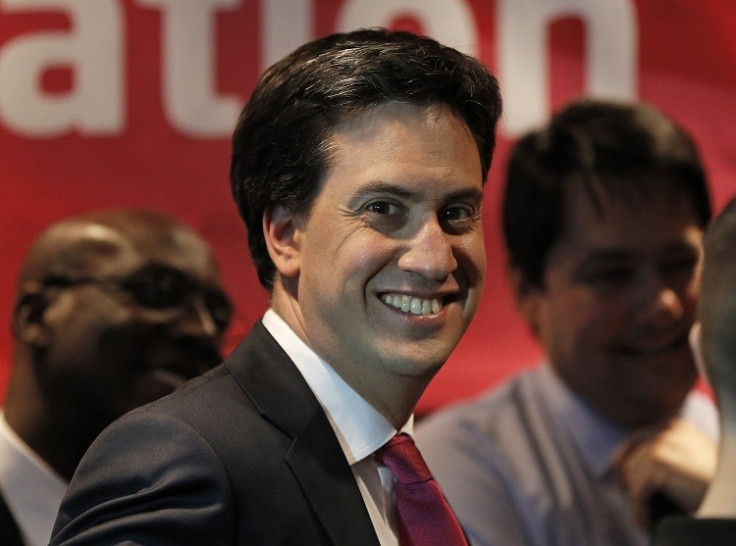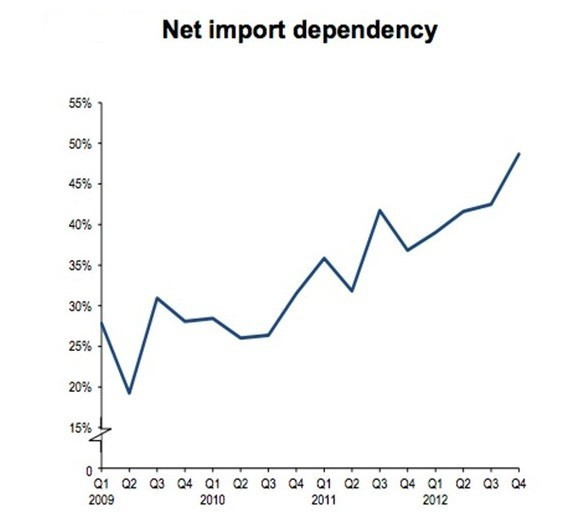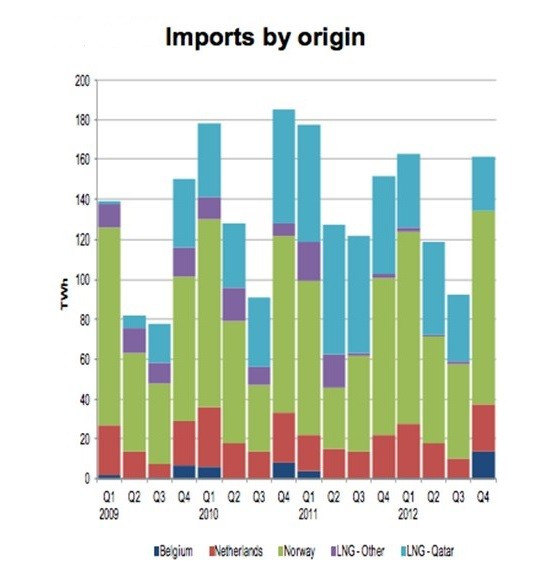Gas War Fears Sum Up Why Labour's Energy Price Pledges Are Plain Wrong

Britain's Labour Party has firmly placed energy issues at the heart of its campaign to mop up votes ahead of the general election in 2015. But behind the headlines are promises that can cause a detrimental effect to our way of life.
While you'd have to be a pretty heartless person to not want to tackle energy poverty, pledges of price fixing and stopping shale gas developments, will only exacerbate Britain's reasonably pathetic situation on energy security and therefore push household bills higher.
In fact, Labour's pledges could do the very opposite of what it promises to fight.
Depressingly, it looks like the public is swallowing Britain's opposition pledges hook, line and sinker as Ed Miliband's poll lead over the Tories has doubled in the wake of the energy prices row.
But Gazprom's, not-too-subtle, warning to Ukraine over its overdue gas bills has only reignited fears that the Russian energy giant could cut off gas to the country and therefore have an impact on the rest of Europe.
Such a move can, and has before, push up household bills.
Britain's Import Problem
Russia supplies a quarter of Europe's gas needs and Ukraine is pivotal to the continent's supply as around 80% of Russian gas normally flows through the country.
Britain has a serious problem with importing energy and is therefore vulnerable to such stoppages.
According to the Department for Energy and Climate Change (DECC), data shows that between 2009 and the end of 2012, the total amount of fuel the country imported rose by 7.1% a year [Figure 1].

We don't import large amounts of fuel because we want to, it's because we have to [Figure 2].

Britain has the one of the worst capacities for storing gas with only around 15 days supply on tap.
Germany has around 99 days of gas storage capacity and France has 122 days of supply.
Yes, that's right, it doesn't matter how much the naysayers bleat, we are at the mercy of importers and are even more susceptible to cuts in supply and rising demand.
Supply and demand is what governs prices.
If, for example, we have an exceptionally cold winter and more people decide to switch their heating on for longer, but imports are restricted because of the lack of supply on the market, then prices go up.
Since Britain is heavily reliant on imports, we are exposed to fluctuations in the market and if Russia and Ukraine decide to spark a gas transit war, like it did in 2006 and 2009, then we will have to pay more to stay warm.
Energy Price Fixing: Goodbye 'High Bills,' Hello Blackouts!
Miliband and the Labour Party clearly found a popular pledge with the voters and have since made energy prices central to their campaign on tackling rising living costs.
There is, undoubtedly a problem with the way the "Big Six" which account for 99% of the country's energy sector, charge consumers.
Ofgem data has revealed that wholesale energy prices have only risen by 1.7% despite the big six energy companies in Britain blaming this for hiking up household bills by 11.1%.
But price fixing is not the answer.
Coming back to market fundamentals, supply versus demand, if you were to fix energy prices within Britain's current energy complex, it is likely that blackouts or rationed heating will occur.
This is not a scaremongering story - this has happened to countries all over the world when Russia and Ukraine put a stop on gas transits through the region.
For example, in 2006, the Italian government installed an emergency protocol in the face of a gas shortage. This included a reduction of 1 degree in heating temperature for houses and offices and slashed the amount of time these buildings would be allowed to switch on the heating.
The US attempted to cap retail energy prices in 2000 and 2001, resulting in blackouts and a huge economic fallout.
Socialist leaning voters may think tackling rising energy bills is great, but guess what, it could mean that more people will be left without heating which wouldn't bode well for the more vulnerable parts of society.
So, What's the Solution?
Britain needs to be able to store more gas and become more independent of imports.
We need a better energy mix and we need to invest. We need a long term solution regardless of what party is in power.
All of these points will lead to less exposure to global markets and mean that we can get a cheaper supply of energy while also providing thousands of jobs in the process.
But the public has to decide what they want.
Energy companies already commit billions of pounds to build new plants in the UK. However, like what happened with RWE npower, we all get our knickers in a twist when they write off those billions of pounds in deductible expenses as "greedy tax avoidance".
RWE npower chief executive Paul Massara told lawmakers that the energy company did not pay UK corporation tax between 2009 and 2011 because of the "very simple reason that [we] invested hundreds of millions of pounds in building power plants, creating jobs, creating employment and help[ed] to keep the lights on."
Massara defended npower's lack of tax payments for this period and said that "this is in no way tax avoidance, and all of our business is taxable in the UK" because the "simple accounting UK rule" meant that investment could be used to reduce the group's tax liability.
"If this country wants to get £110bn (€128bn, $169bn) of capital invested then... you are going to need to allow people that deductibility," he added.
Meanwhile, shale gas, which has been dubbed a game changer by the International Energy Agency, has meant that US citizens enjoy some of the cheapest gas in the world and has brought bills lower.
In fact, they have harvested and established such a glut of supply, they it has meant that the US is significantly secure in its energy mix.
Now, the flippant fairies and grungy protesters are absolutely right that we cannot trade safety for the pursuit of shale gas, but as I have outlined before, a lot of the propaganda on fracking decidedly omits scientific evidence.
No amount of hate mail on pro-shale gas articles is going to change science. Sorry.
Yes, fracking does cause mild tremors, but what the campaigners don't mention is that the British Geographical Survey (BGS) has shown is that the most recent one was at a magnitude of less than one on the Richter scale, classifying it as a "micro" earthquake.
To put it into perspective, this is the equivalent of a heavy lorry driving past your window.
The shale gas industry in the UK could create around 30,000 jobs, not just short-term contracts, but long-term placements that could enable people and communities to develop.
Furthermore, BGS said there is as much as 1.3 trillion cubic feet of shale gas lying under Yorkshire and Lancashire alone, meaning our reliance could be relinquished if we can get the industry off the ground.
So what are we waiting for?
The answers are right in front of us but energy price fixing is not one of them.
© Copyright IBTimes 2025. All rights reserved.






















